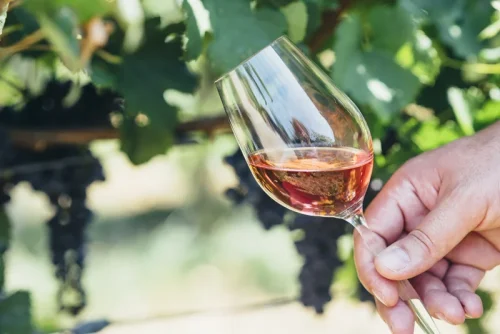Why Do Alcoholics Crave Sugar? The Science Behind the Cravings
The key is to recognize these cravings and have a plan in place to handle them. With the right strategies and support, you can successfully manage your sugar cravings and continue on your path to recovery. In addition to increased sensitivity to sweet tastes, alcoholics also tend to have a preference for sweet drinks. This preference can be attributed to the effects of alcohol on the brain, specifically increasing the desire for sweet and high-fat foods.

Step-By-Step Guide To Detox Your Liver From Alcohol
To manage blood sugar imbalances, individuals in alcohol recovery can focus on consuming complex carbohydrates that provide sustained energy release. Pairing these carbohydrates with a source of protein and healthy fats can help stabilize blood sugar levels and reduce the intensity of sugar cravings. Sugar cravings in individuals recovering from alcohol addiction can be due to replacing one craving with another. Sugar can become a substitute for the pleasurable effects of alcohol, giving individuals a sense of control and familiarity. However, it is important to develop healthier coping mechanisms and address underlying emotional issues. Seeking professional support and therapy can assist in developing effective strategies for emotional regulation and reducing reliance on sugar.

Finding Balance and Mindful Eating Practices
If a newly sober person feels their eating habits aren’t supporting their recovery or mood- it’s time to take a look at these habits. Recognizing the potential influence of sugar cravings on your recovery journey anchors your commitment to overall healthier habits and favorable recovery outcomes. In pairing awareness with professional assistance, you do alcoholics crave sugar equip yourself with the necessary support to tackle any sugar cravings head-on and stay steadfast on your road to sobriety. Substituting alcohol with sugar might appear harmless, but it’s far more impactful than you might think. Focusing on healthy, natural alternatives can be an effective way to manage your sweet tooth after quitting alcohol.
Beyond the Surface: Delving into the Intricacies of Transdermal Drug Absorption
Alcohol and sugar addiction often go hand in hand due to their shared impact on the brain’s reward system, specifically the release of dopamine. People susceptible to alcohol addiction are more likely to develop sugar addiction as well. This connection can be traced back to the brain’s reward system, which can be altered by the impact of alcohol, altering the perception and desire for sweet tastes.
How to Manage Sugar Cravings in Recovery
- Unmask the reality of eating disorders during National Eating Disorders Awareness Week.
- In conclusion, the interplay between alcohol, taste receptors, and sugar cravings is complex and multifaceted.
- So, it’s still possible to gain weight when you’re eating foods that contain sugar alcohols, especially if you eat them in excess.
- The brain and body crave a sugar fix as a result of the tolerance built up to sugar from alcohol intake.
- Alcohol use disorder, also known as alcohol misuse, dependence and addiction, is a medical condition characterized by the persistent consumption of alcohol despite negative consequences.
- Discover effective addiction treatment with non-12-step rehab programs.
While a bit of sugar is never bad, high sugar intake can lead to a relapse of the same substance abuse problems once faced. One of the many problems with alcohol abuse is that most of your caloric intake comes from the amount of alcohol you consume daily. This means that most people who stop drinking haven’t gotten their full nutritional value for an extended period. High sugar intake can result in addictive-like behaviors in individuals, including cravings and a loss of control over consumption. This addictive nature of sugar can be particularly problematic for alcoholics, as it may exacerbate their struggles with alcohol use disorder [2].
Eating certain foods high in nutrients may help improve mood while foods low in nutritional value and high in sugar may be a hinderance to one’s mood. Eating a whole foods plant based diet can help stabilize blood sugar levels, resulting in a reduction of sugar cravings as well as alcohol cravings. Maintaining a healthy nutritional lifestyle is a form of self-care and is indicative of caring about your wellbeing, in which case you will be more inclined to care about your sobriety. By consuming sugary foods, recovering alcoholics can help replenish their glycogen stores, boost energy levels, and improve mood, aiding in their recovery process. A balanced diet can help individuals manage sugar cravings, maintain a healthy weight, and improve overall well-being.
Addressing these nutritional deficiencies through proper supplementation and a balanced diet can help support the body’s healing and recovery process. Active alcoholics often experience altered eating patterns because alcohol can affect appetite, taste buds, and absorption of nutrients. This habit increases the risk of low blood sugar due to consuming alcohol on an empty or near-empty stomach. One reason for this preference may be that alcoholics tend to often suffer a deficiency in thiamine, a B-vitamin essential for processing sugar. This deficiency can lead to intense sugar cravings as the body tries to compensate for its lack of thiamine.
Exploring Substance Abuse Treatment Aspects
Neurobiological Basis of Cravings
- Finally, alcohol addiction manifests in behavioral addiction as well.
- Understanding these factors can help individuals in recovery manage their sugar cravings effectively.
- Many spirits (vodka, tequila, and so on) have only trace amounts of carbohydrates; a glass of wine probably has only a few grams of carbs.
- Another important aspect of recovery is managing the sugar cravings that often come with alcohol recovery.
- This is because your brain is used to the dopamine rush of alcohol, and sugar provides a similar rush.